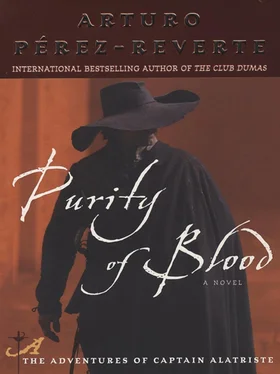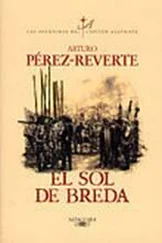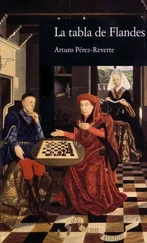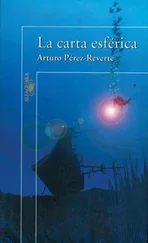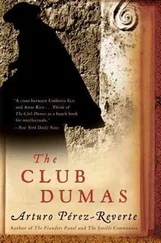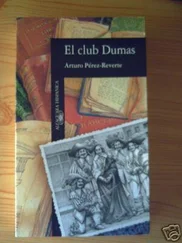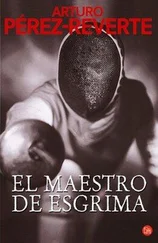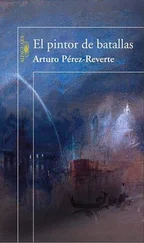Arturo Pérez-Reverte - Purity of Blood
Здесь есть возможность читать онлайн «Arturo Pérez-Reverte - Purity of Blood» весь текст электронной книги совершенно бесплатно (целиком полную версию без сокращений). В некоторых случаях можно слушать аудио, скачать через торрент в формате fb2 и присутствует краткое содержание. Жанр: Старинная литература, на английском языке. Описание произведения, (предисловие) а так же отзывы посетителей доступны на портале библиотеки ЛибКат.
- Название:Purity of Blood
- Автор:
- Жанр:
- Год:неизвестен
- ISBN:нет данных
- Рейтинг книги:3 / 5. Голосов: 1
-
Избранное:Добавить в избранное
- Отзывы:
-
Ваша оценка:
- 60
- 1
- 2
- 3
- 4
- 5
Purity of Blood: краткое содержание, описание и аннотация
Предлагаем к чтению аннотацию, описание, краткое содержание или предисловие (зависит от того, что написал сам автор книги «Purity of Blood»). Если вы не нашли необходимую информацию о книге — напишите в комментариях, мы постараемся отыскать её.
Purity of Blood — читать онлайн бесплатно полную книгу (весь текст) целиком
Ниже представлен текст книги, разбитый по страницам. Система сохранения места последней прочитанной страницы, позволяет с удобством читать онлайн бесплатно книгу «Purity of Blood», без необходимости каждый раз заново искать на чём Вы остановились. Поставьте закладку, и сможете в любой момент перейти на страницу, на которой закончили чтение.
Интервал:
Закладка:
That darkness, though, will not leave memory On that far shore where once it brightly blazed, Instead, my flame will burn through icy waves To flout the laws of death’s finality.
It was at that verse when, as I looked up again, my hand stopped in midair and a drop of ink fell onto my page like a tear. Up Calle de Toledo came a very familiar black coach, one with no escutcheon on the door and a stern coachman driving the two mules. Slowly, as if in a dream, I set aside paper, pen, ink, and drying sand, and stood rooted as if the carriage were an apparition that any wrong movement on my part might dispel. As the coach pulled up to where I stood, I saw the little window, which was open, with the curtains unfastened. First I saw a perfect white hand, and then the blond curls and the sky-blue eyes that Diego Velázquez later painted: the girl who had led me to within a breath of the gallows. And as the carriage rolled past the Tavern of the Turk, Angélica de Alquézar looked straight at me, in a way—I swear by all that is holy—that sent a chill from the tip of my spine to my bewitched and furiously pounding heart. On an impulse, without considering what I was doing, I placed my hand on my chest, honestly and truly lamenting that I was not wearing the gold chain with the amulet that she had given me to ensure a sentence of death, and which, had the Holy Office not taken it from me, I swear by Christ’s blood I would have continued to wear around my neck with besotted pride.
Angélica understood the gesture. Her smile, that diabolic expression I so adored, lighted her lips. And then with a fingertip, she brushed them in something very like a kiss. And Calle de Toledo, and Madrid—the entire sphere—vibrated with a delicious harmony that made me feel jubilantly alive.
I stood watching, still as stone, long after the carriage disappeared up the street. Then, choosing a new quill, I smoothed the point against my doublet and finished putting down don Francisco’s sonnet.
Soul, in which a godhead was enclosed, Veins, through which a humor’s fire arose, Marrow, the seat of earthly passion’s reign,
Will fly the body, but quiddity retain; Though ash, they will have sensibility, Be dust enamored through eternity.
It was growing dark, but not yet dark enough for a lantern. The Posada Lansquenete was situated on a filthy, stinking street derisively called Calle de la Primavera—though there was no perfume of springtime there! It was near the Lavapiés fountain, the location of the lowest taverns and wine cellars in Madrid, as well as of its most ruinous brothels. Clothes were drying on lines strung from one side of the street to the other, and through open windows came the noise of quarrels and crying babies. Horse droppings were piled at the entrance to the inn, and Diego Alatriste took care not to soil his boots when he went into the corral-like courtyard where a broken-down cart with no wheels, only bare axles, was set up on stones. After a quick glance around, he took the stairs, and after thirty or so steps, and after four or five cats had darted between his legs, he reached the top floor without challenge.
Once there, he studied the doors along the gallery. If Martín Saldaña’s information was correct, it was the last door on the right, just at the corner of the corridor. He walked in that direction, trying not to make any noise and at the same time gathering up the cape that concealed his buffcoat and pistol. Doves were cooing in the eaves, the only audible sound in that part of the house. From the floor below rose the aroma of a stew. A serving girl was humming something in the distance. Alatriste stopped, glanced around for a possible escape route, assured himself that his sword and dagger were where they should be, then pulled his pistol from his belt and, after testing the primer, thumbed back the hammer. The moment had come to settle unfinished business. He smoothed his mustache, unfastened his cape, and opened the door.
It was a miserable room that smelled of confinement, of loneliness. Some early-rising cockroaches were scurrying across the table among the remains of a meal, like looters after a battle. There were two empty bottles, a water jug, and chipped glasses. Dirty clothes were slung over a chair, a urinal sat in the middle of the floor, a black doublet, hat, and cape hung on the wall. There was one bed, with a sword at its head. And in the bed was Gualterio Malatesta.
A certainty: If the Italian had made the least move of surprise, or of menace, Alatriste would have without so much as a “Defend yourself!” fired the pistol he held at point-blank range. Instead, Malatesta lay staring at the door as if he were struggling to recognize who had come in, and his right hand did not make a twitch in the direction of the pistol lying ready on the sheets. He was propped up on a pillow, and a face that could strike terror on its own was made even more frightening by pain, a three days’ beard, a badly closed, inflamed wound above his eyebrows, a filthy poultice covering a nasty cut below his left cheekbone, and an ashen pallor. Bandages crusted with dried blood wound around his naked torso, and from the dark stains seeping through them, Alatriste counted a minimum of three wounds. It seemed clear that the assassin had got the worst of the recent skirmish in the alley.
With his pistol still pointed at Malatesta, the captain closed the door behind him and approached the bed. The Italian seemed to have recognized him at last, for the glitter of his eyes, exacerbated by fever, had turned harder, and his hand made a weak attempt to reach for the pistol. He had obviously lost a lot of blood. Alatriste held the barrel of his weapon two inches from the Italian’s head, but his enemy was too debilitated to defend himself.
After acknowledging the futility of trying, he simply lifted his head a little off the pillow. Beneath the Italian mustache, now in need of care, appeared the white flash of the dangerous smile the captain, to his misfortune, knew well. Fatigued it is true—and twisted in a grimace of pain—but it was the unmistakable smile with which Gualterio Malatesta seemed always prepared to live or else depart for the lower regions.
“Forsooth!” he murmured. “If it is not Captain Alatriste.”
His voice was muffled and weak in tone, though firm in words. The black, febrile eyes were fixed on the visitor, ignoring the barrel of the gun pointed at him.
“It appears,” the Italian continued, “that you are performing your charitable works by visiting the ill.” He laughed to himself.
For a moment the captain held his glance and then lowered the pistol, though he kept his finger on the trigger. “I am a good Catholic,” he replied mockingly.
Malatesta’s short dry laugh intensified when he heard that, ending in a fit of coughing. “I have heard that.” He nodded, when he had recovered. “Yes, that is what they say. Although in recent days there have been some yeas and nays on the subject.”
He still held the captain’s eyes, but then, with the hand that had not been capable of picking up the pistol, he motioned toward the jug on the table.
“If it is not too much, would you set that water a little closer? Then you could boast that you had also given drink to the thirsty.”
Alatriste considered for a moment, then picked up the jug and brought it to the bed, never taking his eyes from his enemy. Malatesta drank two avid gulps, observing the captain over the rim of the jug.
“Have you come to kill me straight off,” he inquired, “or do you hope that first I will spill out the details of your most recent venture?”
He had set the jar to one side, and weakly swiped his mouth with the back of his hand. His smile was the smile of a cornered snake: dangerous to the last hiss.
Читать дальшеИнтервал:
Закладка:
Похожие книги на «Purity of Blood»
Представляем Вашему вниманию похожие книги на «Purity of Blood» списком для выбора. Мы отобрали схожую по названию и смыслу литературу в надежде предоставить читателям больше вариантов отыскать новые, интересные, ещё непрочитанные произведения.
Обсуждение, отзывы о книге «Purity of Blood» и просто собственные мнения читателей. Оставьте ваши комментарии, напишите, что Вы думаете о произведении, его смысле или главных героях. Укажите что конкретно понравилось, а что нет, и почему Вы так считаете.
